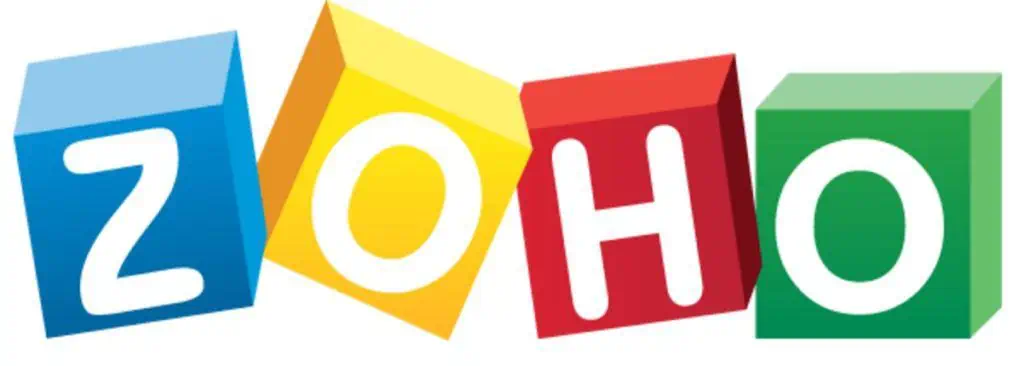Should you dive into Zoho FSM?
In 2019, we got the first glimmerings of a new Zoho app called Zoho FSM, or Field Service Management. Now over halfway through 2020, Zoho has been slowly–very slowly!–opening the gates to this app and allowing both Zoho partners and users to test it.
And of course, the testing phase is part of any successful app rollout, especially when it’s something brand-new like Zoho field service management. Zoho has toed the ERP waters before with their combination of Zoho Books and Inventory. However, Zoho FSM is their first foray into something even grander, something that could dovetail onto that stack and turn Zoho into a real ERP contender. The question is: Is Zoho FSM enough?
If you’ve known Zoho for any length of time, you know that improving their software continuously is one of their strong points. They’re one of the companies that seem to lead in this category, giving you real value every time you renew your monthly subscription to one of their apps. As opposed to some companies, whose software you may use every month, but it’s basically the same software–and, additions of new fields in a module are cause for New Release! announcements.
Hot Take: How do we feel so far?
Even with knowing all this, it’s tough to say how quickly Zoho FSM will be able to deliver on its promise. But, we at ZBrains are hoping Zoho is able to push this app out to market quickly.
Now… that may seem like a strange comment for someone unfamiliar with what we do at ZBrains. But, to explain: we don’t just provide Zoho consulting services here. We’ve actually developed a whole ERP framework for Zoho called FieldTech.
So, at first glance, it would appear that this field service management app from Zoho is in direct competition with the FieldTech offering. And, sure, in some ways, it is. But, not in all ways, as we’ll discuss soon.
So, why is the addition of Zoho FSM a good thing?
It’s a good thing because it gives you, as someone who may want us to help you one day, one more potential option for your field services, construction, manufacturing, or tech business to use as a field service management platform. Connect that to your Zoho CRM, and suddenly managing your entire business through Zoho doesn’t seem so insurmountable.
Of course, we’d love for you to use our FieldTech offering. But, we understand it may not be for everyone. Zoho Field Service Management seems to be geared more towards scheduling appointments or work orders, work order management, and invoices related to those WOs. FieldTech, on the other hand, tackles those areas and adds the possibility of custom quoting, advanced inventory management, shop orders, job costing, and commission calculation. So, whereas Zoho FSM is one single app, FieldTech has a Service Order Management component–and a suite of other, connected field service apps.
The costs of using FieldTech versus Zoho field service management are different, too. Zoho Field Service Management offers a price per appointment model, whereas FieldTech’s pricing is per user. If a company needed to decide between the two platforms based on pricing alone, it’s hard to see which way the org would go. At least so far.
But, essentially, as long as you’re using a Zoho service to manage your field service business, that’s a victory for us.
Does this mean we’re going to stop developing FieldTech?
Quite the contrary! We aren’t privy to Zoho’s overarching vision for this app, or vision for any other apps they may want to connect to it in the future. If Zoho stopped at just field service management, that would be fine. But, as you can probably tell by the host of other features inside FieldTech, we’ve never intended to stop there with that suite. We improve the platform on a weekly basis, and it’s only a matter of time until we release some new apps for the suite.
We’re guessing that Zoho’s FSM app will work well for users with a simpler use case. And, our FieldTech Service Order Management app will work better for organizations with more complicated needs–either just for field service management, or organization-wide.
Exploring whether Zoho FSM is a suitable choice for your business
The testing phase is a crucial aspect of a successful app rollout, particularly when it involves something as innovative as Zoho Field Service Management. Zoho, already known for its ERP tools like Zoho Books and Inventory, is taking a significant step forward with Zoho FSM, aiming to position itself as a formidable ERP contender.
Can Zoho FSM meet your needs effectively?
If you’re familiar with Zoho’s track record, you know that continuous improvement is at the core of their software development philosophy. Unlike some companies that offer stagnant software, Zoho consistently enhances its applications. This commitment ensures that Zoho FSM will evolve to meet the changing demands of businesses.
Considering Zoho’s commitment to improvement, what can you expect from Zoho FSM in the future?
To provide a clearer picture, let’s compare ZBrains‘ FieldTech and Zoho FSM. While Zoho FSM focuses on scheduling appointments, managing work orders, and related invoicing, FieldTech goes a step further. It offers features such as custom quoting, advanced inventory management, shop orders, job costing, and commission calculations.
The addition of Zoho FSM is a positive development for businesses. It offers an additional option for managing field services, whether your business is in construction, manufacturing, or technology. Integrating it with Zoho CRM simplifies the management of your entire operation.
How does the introduction of Zoho FSM benefit businesses?
Looking ahead, both Zoho FSM and FieldTech have their unique strengths. Zoho FSM may suit simpler use cases, while FieldTech excels in complex scenarios. Zoho’s vision for FSM may evolve, and the choice between the two depends on your organization’s specific requirements.
What should you keep in mind while picking between Zoho FSM and FieldTech?
It’s also critical to stay up to date with Zoho’s continuous improvements in this area. At ZBrains, we provide a free introductory consultation to help you make informed decisions about Zoho FSM, FieldTech, or any other Zoho service that may have an influence on your organization.Here are some actionable steps you can take regarding Zoho FSM.
In conclusion, the introduction of Zoho FSM represents a strategic move aligned with Zoho’s commitment to innovation and continuous improvement. It presents an opportunity for businesses to streamline their field service management processes and integrate them into a comprehensive ecosystem. Ultimately, your choice between Zoho FSM and FieldTech will depend on your organization’s unique needs and goals.
What should you do with regards to Zoho FSM?
If you have access to the app, test it! We’ll certainly be doing the same. Any experience you have on the Zoho platform will help you make a more informed choice about which apps will work best for you.
As always, we will keep you in the loop about any Zoho FSM developments. And, when the full version of the app finally comes out, rest assured we’ll provide a full breakdown of features, as well as an official comparison between FSM and FieldTech.
If you’re still a little in the dark about what to do, get in touch with us for a free introductory consultation, where we can talk about how FSM, FieldTech, or any other Zoho app would potentially affect your business.


































 Businesses stand to save a good deal on Zoho One
Businesses stand to save a good deal on Zoho One  Okay, not quite 80% off…but darn close.[/caption]
Okay, not quite 80% off…but darn close.[/caption]







